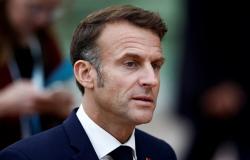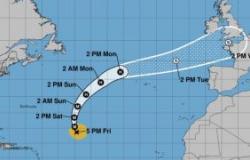For decades, immigration has crystallized tensions within the French political class. This subject, a source of heated debates and deep divisions, has shaped the French political landscape. From the establishment of quotas to the integration of new arrivals, including the regularization of undocumented immigrants, each aspect of this complex issue has given rise to ideological clashes. Right-wing parties have generally advocated a more restrictive migration policy, while the left has often advocated a more open approach. This polarization has been accentuated with the rise of the far right, which has made the fight against immigration its hobby horse. Over the years, successive governments have oscillated between firmness and openness, reflecting the difficulties in finding a national consensus on this thorny issue.
A gaping divide at the top of the state
The recent exchange of arms between President Emmanuel Macron and his Minister of the Interior Bruno Retailleau illustrates the extent to which immigration remains an explosive subject within the government itself. While Retailleau affirmed that immigration was “not an opportunity” for France, the head of state reacted strongly, describing these remarks as “resolutely in contradiction with reality”. This public divergence highlights the tensions running through the executive on this sensitive issue.
To support his point of view, Emmanuel Macron mentioned emblematic figures from immigration, such as Marie Curie or Charles Aznavour, thus highlighting the cultural and scientific contribution of people of foreign origin to French society. The president insisted on the fact that France is “a country that has always been open” and that dual nationals and French people with immigrant backgrounds constitute a “wealth” and a “strength” for the country.
Between openness and control: the quest for balance
Despite his defense of immigration, Emmanuel Macron is not unaware of the challenges it poses. He particularly pointed out the need to fight against human traffickers and illegal immigration networks. The president also stressed the importance of offering dignified reception conditions to new arrivals, while preserving the hospitality of the host country.
This nuanced position contrasts with the firmer approach recommended by Bruno Retailleau. The Minister of the Interior announced a series of measures aimed at toughening migration policy, including the reestablishment of the offense of illegal residence and the extension of the period for detention of foreigners in an irregular situation. These proposals are part of a stated desire to “control” immigration, an objective shared by Prime Minister Michel Barnier, although the latter has remained more evasive in his declarations.
The debate on immigration in France goes far beyond national borders. Emmanuel Macron notably raised the issue of development aid, emphasizing that private returns of immigrants to the African continent currently exceed European public aid. This observation highlights the complex interconnections between immigration, economic development and international relations.





